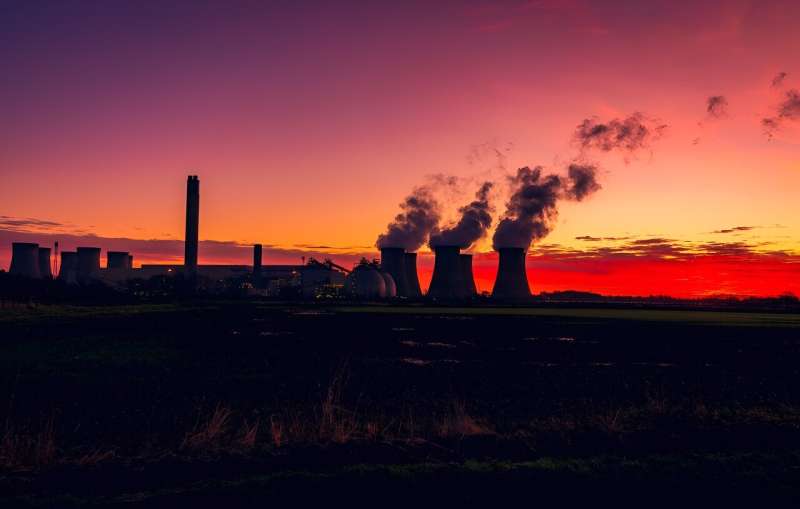This article has been reviewed according to Science X's editorial process and policies. Editors have highlighted the following attributes while ensuring the content's credibility:
fact-checked
trusted source
proofread
Study highlights carbon capture, utilization and storage potential for North Sea 'super basin'

A research study led by the University of Aberdeen has identified areas of a North Sea gas 'super basin' with the greatest potential for storing industrial carbon emissions, a key aim of the energy transition.
Scientists from the University's Center for Energy Transition used subsurface data and techniques usually employed in oil and gas exploration, to produce a detailed technical study of the Anglo-Polish Super Basin in the Southern North Sea to determine its suitability for carbon capture, utilization and storage (CCUS).
Their results confirm the huge potential of the area—a globally important hydrocarbon basin—as a future CCUS hub where industrial emissions can be safely stored in former gasfields and other geological formations.
If used in this way, the basin could play a major role in helping European nations sequester carbon emissions and meet net zero targets while promoting energy security, protecting industrial activity and prolonging the life of North Sea basin infrastructure.
As well as showing the geological criteria that determine the areas with the greatest potential, the study also highlights the need to assess non-geological risks—such as the potential for leaks along legacy wells and the need to avoid co-location conflicts with other stakeholders such as windfarm operators or the fishing industry.
The research provides a framework that can be used to determine CCUS suitability in other major basins around the world, as part of global efforts to safely store billions of metric tons of CO2 in geological formations.
The two-year study was led by Professor John Underhill, Director of the University's Center for Energy Transition, along with colleagues from Heriot Watt University in Edinburgh. It was published in the AAPG Bulletin.
Professor Underhill said, "The study highlights the areas where the best carbon stores are located and provides a basis to evaluate and rank sites.
"Perhaps just as importantly, it also demonstrates the urgent need for regulators and stakeholders to work together to resolve any issues that may arise from the co-location and overlap of technologies to avoid competition for the offshore real estate. This is vital in ensuring that the UK remains on track to retain energy security and meet its net zero emission targets.
"The study also has global relevance and application, and the workflow we have used has already been adopted by other countries. We have also used it to undertake studies in other parts of the UK as well as in Malaysia, Egypt and Brazil."
Dr. Nick Richardson, Head of Exploration & New Ventures at the UK's regulator for Carbon Storage activities, the North Sea Transition Authority, said, "The Aberdeen University-led team has made a timely and incisive contribution with this world-class research that puts the UK's storage resource capability on the map as a leading destination for the sequestration of industrial emissions from across Europe.
"By establishing a consistent regional geological framework, this work will assist the evaluation of storage sites within the Southern North Sea, allowing the optimization of their exploitation and supporting assessments of risk and uncertainty. It will also aid regulatory and marine planning bodies in their ongoing efforts to identify synergies between offshore activities, and maximize opportunities for innovation and collaboration on the pathway to net zero."
Graeme Davies, Harbor Energy's Project Director of Viking CCS said, "The UK Continental Shelf, and in particular the Southern North Sea Gas Basin, provides world-class CO2 storage opportunities as we look to decarbonize our industrial and power sectors.
"This leading independent academic study into the basin's geology and structured approach to risk segment analysis provides a robust platform for the long-term development of CO2 storage opportunities and provides further insight into how we are well positioned to use our existing oil and gas sector's skills, data and infrastructure to help develop the burgeoning CCS industry in the UK."
More information: Use of exploration methods to repurpose and extend the life of a super basin as a carbon storage hub for the energy transition. AAPG Bulletin. DOI: 10.1306/04042322097. pubs.geoscienceworld.org/aapgb … le/107/8/1419/627234
Provided by University of Aberdeen





















